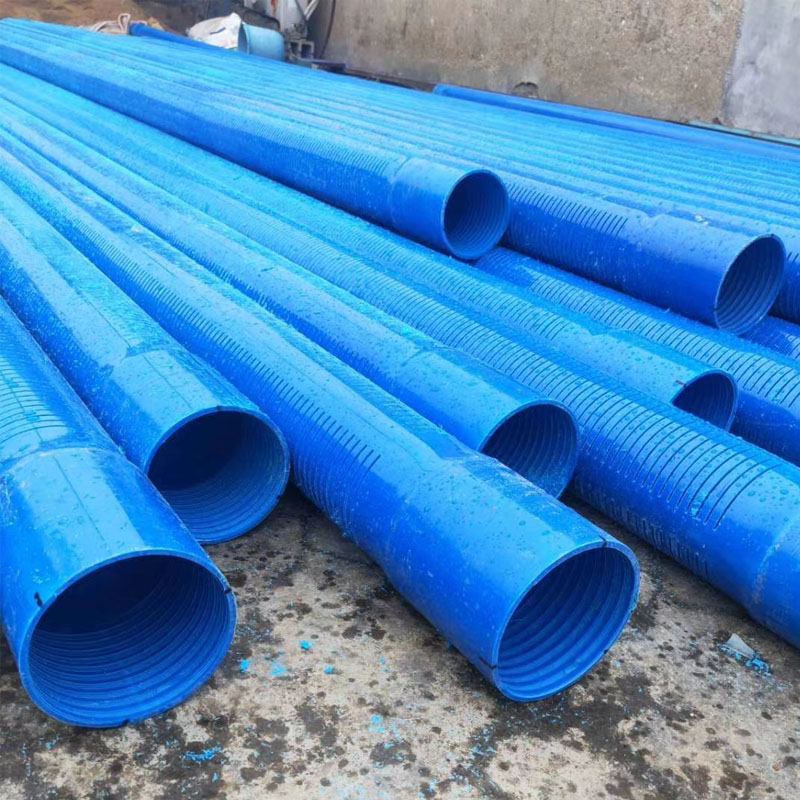Jul . 26, 2024 19:31 Back to list
Choosing the Right Pipe Size for Optimal Submersible Pump Performance and Efficiency
The Role of Column Pipes in Submersible Pump Systems
Submersible pumps are a vital component in various industries, ranging from agriculture to municipal water supply systems. These pumps are designed to operate underwater, pushing water to the surface through a series of pipes. Among the most crucial elements of a submersible pump system is the column pipe, which serves as the conduit for transferring water from the pump to the surface. This article will delve into the importance, types, materials, and maintenance considerations regarding column pipes used in submersible pump service.
Importance of Column Pipes
Column pipes play a fundamental role in determining the efficiency and effectiveness of submersible pump systems. Their primary function is to carry the water extracted by the pump up to the surface and into storage tanks or pipelines. The height and diameter of the column pipe affect the pressure and flow rate of the water being pumped, making it essential to select the appropriate specifications based on the application and site conditions. Improper sizing can lead to cavitation, excessive wear on the pump, and increased energy consumption, resulting in operational inefficiencies.
Types of Column Pipes
Column pipes come in various designs and configurations, suited to different applications. The most common types include
1. Rigid Pipes These are made of materials like PVC or fiberglass and provide structural support, allowing for vertical installation without collapsing under pressure. Rigid pipes are ideal for deeper well applications where stability is crucial.
2. Flexible Pipes Flexibility in pipe materials such as polyethylene makes them suitable for applications requiring ease of installation and reduced risk of damage during thermal expansion or ground movement. However, they may not provide the same level of structural integrity as rigid pipes.
3. Stainless Steel Pipes Often used in corrosive environments, stainless steel column pipes offer durability and resistance to rust and chemical damage. While they can be more expensive, their longevity often justifies the initial investment.
Materials Used in Column Pipes
column pipe for submersible pump service

Selecting the right material for column pipes is critical for ensuring longevity and reliability
. Common materials used in column pipe construction include- PVC (Polyvinyl Chloride) Lightweight and resistant to corrosion, PVC is often used for shallow applications and offers a cost-effective solution for many pumping systems.
- Fiberglass Known for its strength-to-weight ratio, fiberglass pipes can withstand high pressures and are resistant to corrosion, making them suitable for a range of applications, including wastewater treatment.
- Stainless Steel As mentioned, stainless steel is ideal for harsh environments but comes with higher costs. Its durability makes it the preferred choice for critical installations, such as in industrial settings.
Maintenance Considerations
Maintaining column pipes is essential for the overall health of a submersible pump system. Regular inspection for wear and tear, leaks, and structural integrity is vital. Corrosion and scaling can lead to blockages that impede water flow and damage pumps.
Furthermore, when deploying the system, ensuring proper alignment of the column pipe is crucial. Misalignment can lead to vibrations that will shorten the lifespan of both the pipe and the pump.
Conclusion
In summary, column pipes are integral to the efficient operation of submersible pump systems. Their design, material selection, and maintenance significantly impact the overall performance and longevity of the pumping system. Understanding the role and characteristics of these pipes allows for optimal arrangements that enhance water transfer efficiency, ultimately leading to better resource management in both agricultural and municipal contexts. Investing in high-quality column pipes and adhering to maintenance guidelines can lead to improved reliability and reduced operational costs over time.
-
DN100 PVC Pipes for Well Casings - Durable & Corrosion-Resistant
NewsAug.22,2025
-
HORON 25mm PPR Plumbing Pipes: Durable, Reliable & Leak-Proof
NewsAug.21,2025
-
32mm HDPE Pipes in Coil: Flexible & Durable Water Supply
NewsAug.19,2025
-
Flexible 32mm HDPE Pipes in Coil - Durable & Easy Install
NewsAug.18,2025
-
HDPE Sprinkler Pipe Manufacturers - Quality & Durable Solutions
NewsAug.17,2025
-
Durable DN100 PVC Well Casing Pipes for Reliable Water Supply
NewsAug.16,2025

